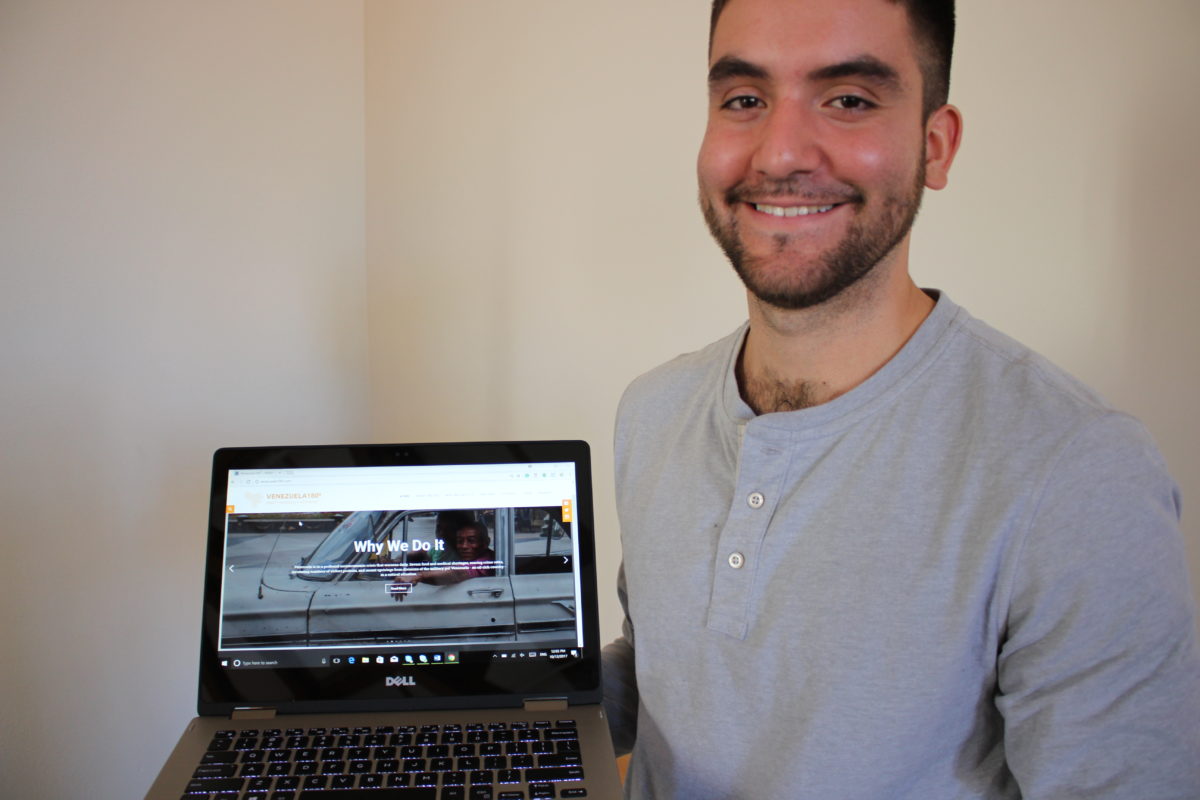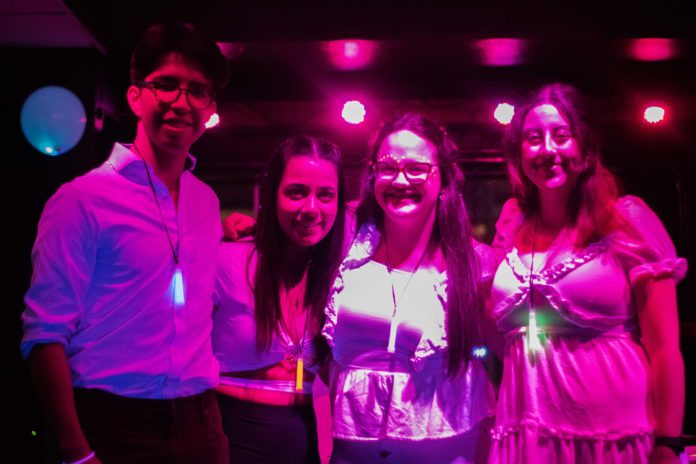Caracas native Jimy Beltrán left Venezuela when he was only 10 years old. He moved
from place to place until finally arriving in Canada and studying at St. Thomas
University.
During his third year, he observed from afar how his home country went through a tough
period, specifically with the issue of severe food insecurity. According to a 2015 survey, food scarcity affected 87 per cent of the population.
The urgency of the crisis led Beltrán to found Venezuela 180°, a club at STU that fundraised to support organizations in Venezuela focusing on food security.
“I grew frustrated as the situation has continued to worsen in my country,” he told The
Aquinian in 2017. “I was not satisfied on a personal level with the solutions that
were available for me.”
Venezuela 180° went on to organize different community-engaging fundraisers, such as
partnering with local Latinx businesses, hosting events at The Cap and arranging
giveaways.
Once Beltrán graduated from university in 2018, he continued to work with the
organization, leading it until 2022 when he moved to Montreal for his Master’s degree.

But in 2022, Venezuela 180° had its last fundraising event — a neon party at The Cap,
which managed to fundraise over $400.
Multiple clubs did not survive the pandemic and the impact it had on student
engagement, but the case of Venezuela 180° stands out because of its charitable
purpose.
Related: Photo Essay: Venezuela 180 neon party fundraises for Venezuelan non-profits
Isabella Baralt, vice president of Venezuela 180° in its last year and a student from
Venezuela, said there are multiple reasons for its demise, including the larger parent
organization ceasing to exist and the transition process.
“Sometimes, you can have a very passionate student about something and they open a
club with their friends and then, when they graduate, it’s no longer there,” she said.
“Having a small club it’s so much trickier.”
Another reason Baralt said the club lost momentum is the Venezuelan situation has
flown under the radar compared to other ongoing crises in Gaza, Yemen and Ukraine.
Venezuela’s crisis has led to 6 million diaspora, making it the world’s second-largest
displacement as per the UN Refugee Agency.
While some clubs are in the process of being brought back, Beltrán said the club is no
longer the kind of help Venezuela needs at this point in February 2024.
“Venezuela is in a moment that requires a different type of support.”
Related: The resurrection of STU’s dead clubs
Beltrán said one of his favourite moments with Venezuela 180° was when he travelled to the country and got to meet partner organizations and their impact on the ground.
“Travelling to downtown Caracas and seeing this after-school program that we have
been helping … it was quite wonderful,” he said. “When you come face to face with the
fruits of the labour that you and your volunteers and your team have been put in. So that
was quite, quite wonderful.”
Even though Beltrán remembers some wholesome moments with Venezuela 180°, he said
he has no nostalgia for the organization, but rather pride in the impact it had in its five-
year run.
“I think that for half a decade we did a lot of good job,” he said.

